Star Trek ’s Simon Pegg, Giving Her All She’s Got
The actor and screenwriter reflects on the legacy of a science fiction franchise that’s been boldly going for half a century.
:focal(2685x560:2686x561)/https://tf-cmsv2-smithsonianmag-media.s3.amazonaws.com/filer/df/a1/dfa1c831-d106-4183-a001-2640be1879b0/sofia_boutella_and_simon_pegg_kimberly_french.jpg)
Actor, writer, and comedian Simon Pegg established his nerd bonafides in Spaced, a 1999 sitcom he co-wrote for British television in which he played Tim, a sweet but immature aspiring comic book artist obsessed with Star Wars and science fiction. The series was directed by Edgar Wright, with whom Pegg would co-write the 2004 zombie comedy Shaun of the Dead, which introduced him to American audiences.
After a two-scene part in 2006’s Mission: Impossible III, that film’s director, J.J. Abrams, cast Pegg in his next: The 2009 reboot feature Star Trek, which featured a cast of energetic young actors reimagining the roles from the classic TV show of the 1960s. Pegg has now played U.S.S. Enterprise Chief Engineer Montgomery “Scotty” Scott in three features, including 2013’s Star Trek into Darkness and Star Trek Beyond, which comes out tomorrow. Pegg also co-wrote the new film’s screenplay with Doug Jung.
Air & Space reached the 46-year-old actor by phone in Los Angeles late last week to talk about the new movie and the legacy of Gene Roddenberry’s optimistic outer-space fantasy.
This interview has been lightly condensed and edited for clarity.
Air & Space: Star Trek Beyond was a screenwriting assignment that was offered to you rather than one you lobbied for. Did you have any hesitation about saying yes?
Pegg: I didn’t, because it felt like it was too awesome an opportunity to pass over. I didn’t stop to think about it. If I had, it might’ve given me pause, because of the seemingly insurmountable task that it was. We didn’t have a lot of time. The development, inception, preparation, and execution of the script sort of happened simultaneously. But it was the keys to a kingdom I’ve long been a fan of. When that comes along, you tend to just grab it.
At one point Roberto Orci, who helped to write the prior two films in this franchise, was set to direct this movie. You’ve said publicly that Paramount wanted a more accessible, genre-oriented Trek film than his would’ve been. That reminded me of what happened after Star Trek: The Motion Picture, when Gene Roddenberry was pushed aside and Paramount asked for a cheaper, more action-packed follow-up. The result of that was The Wrath of Khan, a movie every Star Trek fan loves. But in the case of the current series of films, we were already in this fast-paced, J.J. Abrams interpretation of Star Trek. When Justin Lin was announced as the director, my response was, “How much faster or more action-driven can Star Trek get before it turns into something else?”
I think those comments from Paramount earlier on were about trying to open up the universe to the uninitiated. I made the mistake of saying “less Star Trek-y,” which wasn’t exactly right. What they meant was “less inside-baseball.” If you come to a movie and there’s seemingly a lot of homework you should’ve done beforehand, it can feel kind of alienating.
I think one of the issues they might have had with [Orci’s script] was that it wasn’t as inclusive as it could be. They wanted to create a Star Trek which was at once accessible to the uninitiated, and also embodied everything that had made [the series] great over 50 years. It was more a case of evening the balance. We do have a rich history of characters and situations to draw on, but you want to continue to bring in new fans and seek out new people. To Boldly Go, etc., etc.
[NOTE: Four days after this interview, Paramount announced another Star Trek film to follow Star Trek Beyond, one rumored to be using the “inside baseball” time-travel storyline that Orci’s film would have. We do our best, but it is simply impossible to stay current on news of the 23rd century, people.]
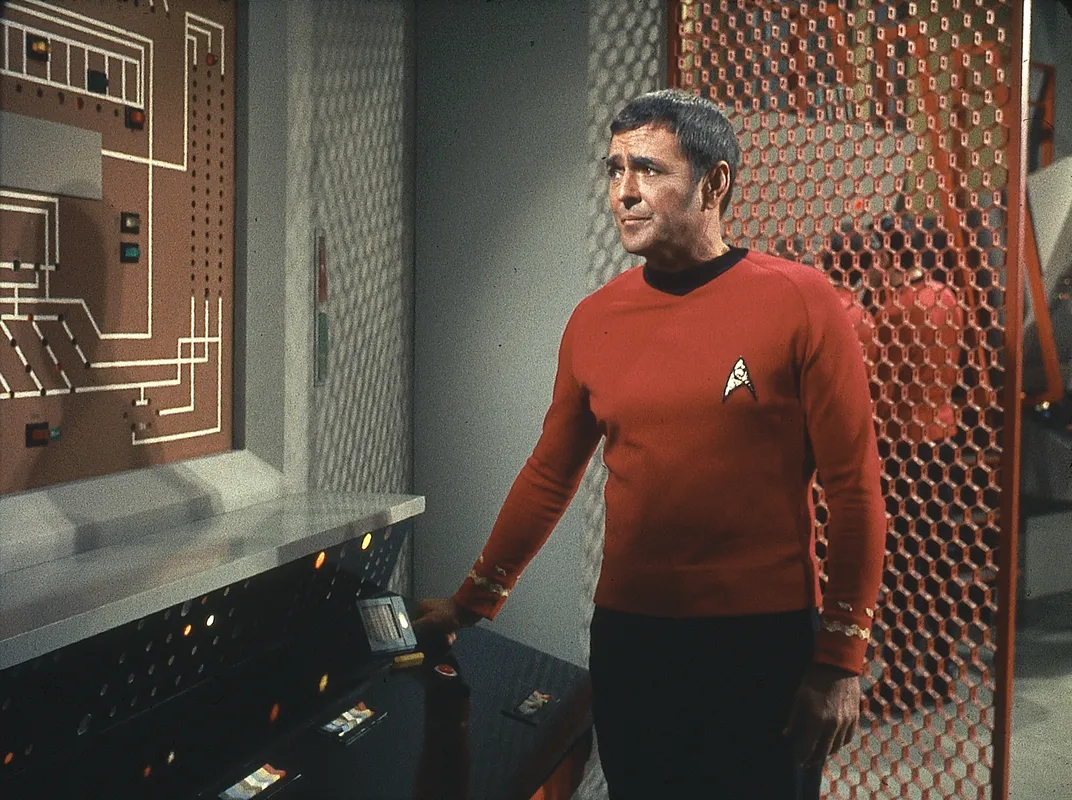
That’s interesting, because it seems like movie studios are less afraid than they’ve ever been of alienating “normals” who have missed the prior nine movies or seen the TV show or read the comic book or whatever. I’m thinking particularly of the Marvel movies. It seems to me that the audience likes the feeling of being immersed in a richly imagined fictional world that’s been around for decades, whether or not they understand every piece of backstory or recognize every supporting character.
Well, the Marvel movies do it well. You read these articles about how there was something in the background of some scene that related to issue 19 of Ultimate Avengers or whatever. I don’t have extensive knowledge of the Marvel Universe. I’ve enjoyed Captain America very much without really knowing about it.
But even those guys have to strike a balance, because not everybody is a card-carrying Marvel fanatic. Most people are just cinemagoers who want to be entertained. And that can be said of most things. Even Star Wars.
So how devout were you when J.J. Abrams cast you in Star Trek in 2007? Were you a Trekkie or a casual fan?
I was card-carrying! I hesitate to call myself a Trekkie, because those are stripes you really have to earn. You probably have to undergo some kind of test where you answer a series of questions. But I grew up watching Star Trek. I’ve always been a fan of it. I had more than a passing knowledge of it—certainly enough for the uninitiated to call me a nerd, or a Trekkie. But there are people out there who have vast, exhaustive knowledge. I know it well enough and have loved it long enough to feel comfortable writing it. It was incredible enough to play Scotty, but then to be writing dialogue for Kirk and Spock—that was something else.
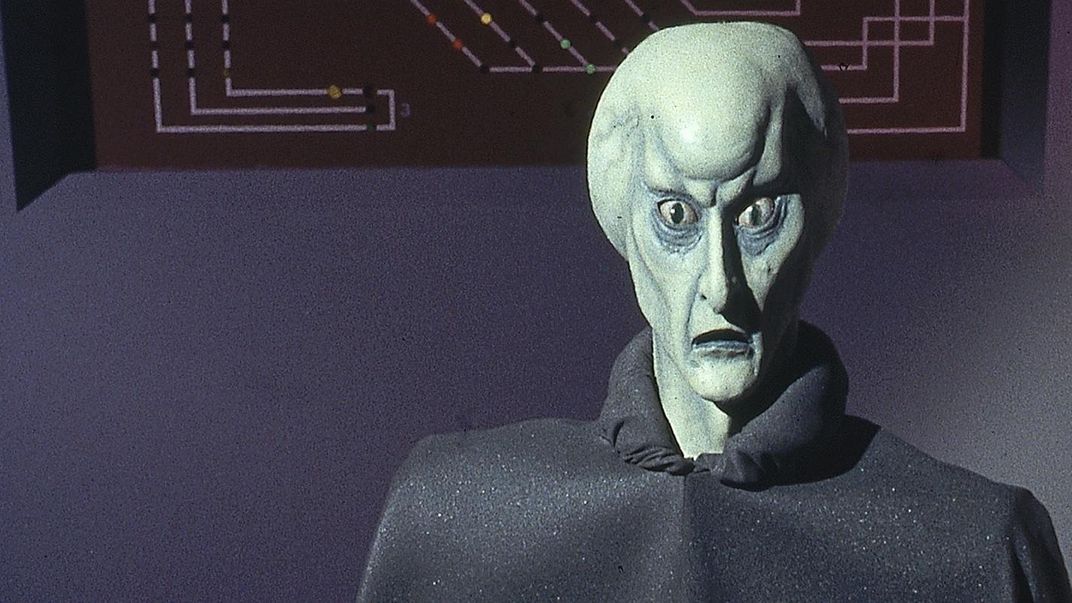
Do you have a favorite Star Trek story?
I always come back to “The Corbomite Maneuver,” one of the earliest episodes from the first season, before Chekov joined. It had Clint Howard as this strange little boy who had this sort of alien proxy that he would use to intimidate ships, this character called Balok. As a child he terrified me. His visage was featured in the photo montage under the closing credits. But I’ve gone back to it again and again. We even quoted something from it in Star Trek Beyond. It’s just a great episode, one of those classic chess matches between Kirk and the crew and their adversary. It’s strange and exotic, and it ends in the weirdest, creepiest cheese-dream way, as a lot of those stories did.
I think that’s one of the ones where humanity, as represented by the crew of the Enterprise, is being given a test of its compassion.
Yes, exactly.
What about a favorite character?
Scotty aside, I’d probably say Spock. I love that he’s almost like this stern father-figure who you constantly look to for emotion, and they don’t often give it, but when they do, it’s absolutely delightful. In episodes like “Amok Time” or “Shore Leave” where Spock would drop his Vulcan discipline and bits of his humanity would creep out, that was always so welcome and so fun. He was this mystery, this cypher, who somehow managed to suppress his human emotions, but whenever they crept out you were just so pleased to see he was actually a good guy.
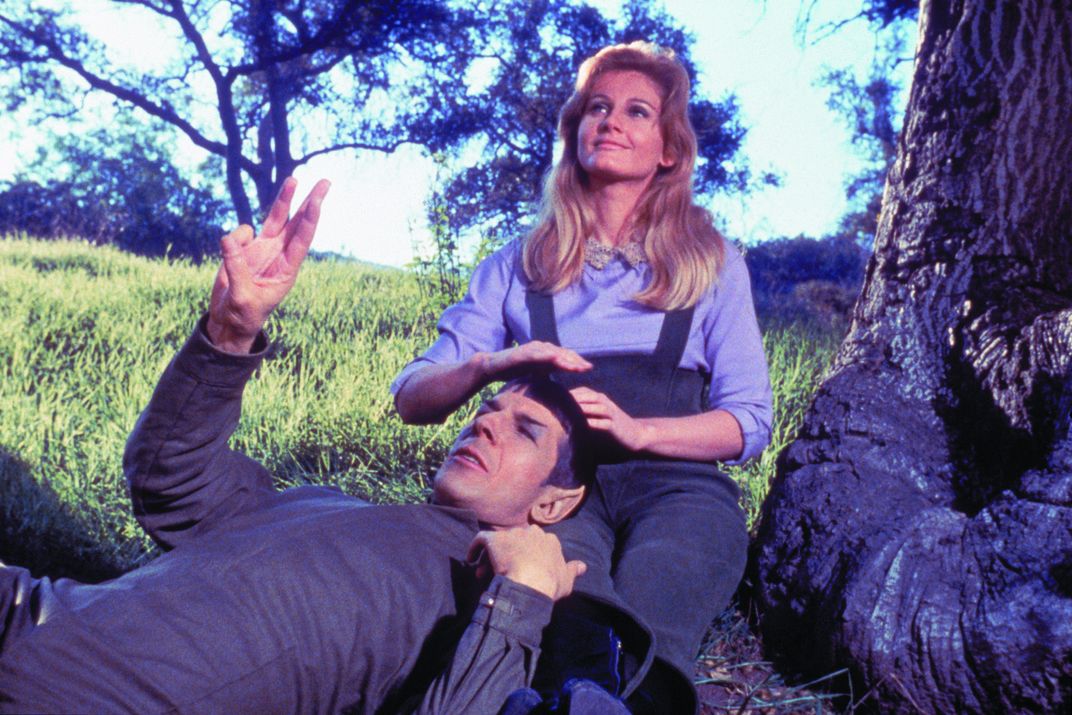
I was one of those people who came out of the last movie—where we see Spock crying—saying, “I’m not averse to this, but this is much too soon. I want this to happen later.”
Yeah. I feel like that whole storyline should’ve come later, really. We were in a bit of a hurry to explore that relationship [between Spock and Kirk, who dies in the movie, briefly], and on reflection, it wasn’t earned. That situation took place in The Wrath of Khan many, many years after they had met. They’d had a long friendship by then. And obviously, it didn’t even happen that way ‘round in Wrath of Khan, but if it had done, you might have possibly forgiven it.
In our film, Spock has to have a large piece of metal shoved into his side and be on death’s door before he deliriously succumbs to laughter. But if you can earn the situation where Spock shows emotion, that’s always a delight.
What’s your earliest Star Trek memory?
Probably of The Animated Series, which I think ran from ’72 to ’74 or something. It must’ve been a rerun, because I was only two or three then. I remember watching that quite avidly, and then finding out there was a “real” version as well.
I remember going to see The Motion Picture in 1979 with my Uncle Greg. [Laughs.] I remember it from various points in my life. They used to show Star Trek on BBC Two at six o’ clock. It’s kind of been around my entire life. Any period of my life, I can generally identify a relationship with Star Trek.
The animated series used the voices of the original cast, right?
Yeah, it was mostly the original cast. But the navigator or the pilot—I think it was the Chekov role—was an alien. It wasn’t Chekov, it was this weird creature. They made a version of that alien and it’s aboard the Enterprise in the ’09 [feature film] Star Trek.
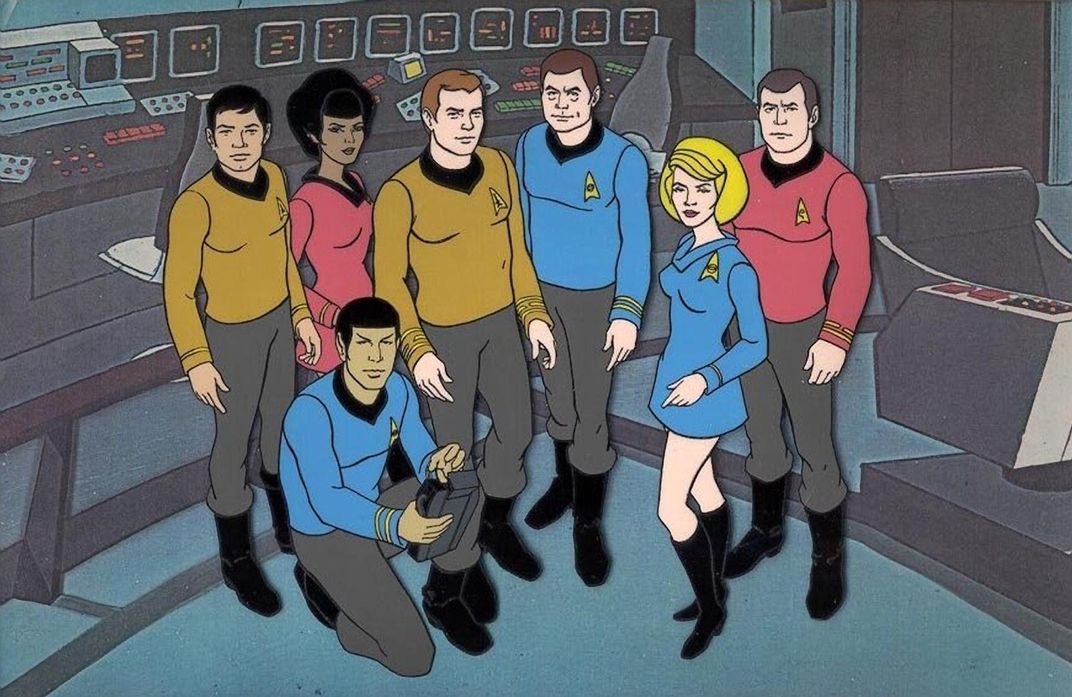
Star Trek is the most optimistic imagining of humankind’s future that we’ve seen onscreen. You touched on this a little bit already in a lovely blog post you wrote last week about George Takei’s reaction to the news that Sulu, the character he originated, is depicted as gay in your new movie, but I’ll ask anyway: Do you think there’s a practical lesson, or a thread of inspiration, to be drawn from Star Trek?
Oh, absolutely. It’s always been a projection of the best of who we are, or who we could be. It’s the ultimate expression of humanity’s potential: A situation where we’re all working together with total tolerance and zero prejudice. “Infinite Diversity in Infinite Combinations,” as Gene Roddenberry used to say. We should aspire to get so far.
I know that [in many Star Trek stories] we’re still ultimately having the same petty conflicts we do on Earth, only with other species. But at least we’ve got it sorted out here. We’ve moved out into the galaxy with great intentions and progressive thinking. I think that’s why Star Trek has always appealed, and why it still appeals: It offers a really attractive future that it sometimes feels like we’re going to find very difficult to attain.
Yeah. For me it’s the X-Files thing: I don’t necessarily find it plausible that humanity will grow more enlightened and peace-loving in the next couple of centuries, but I want to believe.
Yeah. It would be nice.
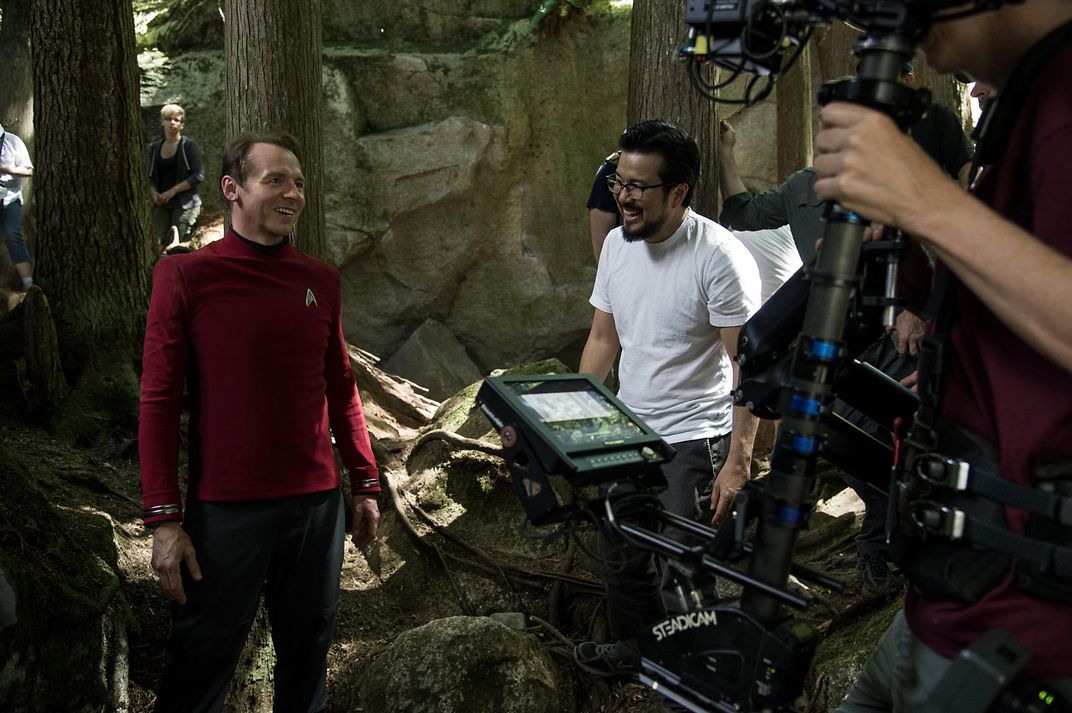
The prior two movies were shot in Los Angeles, but this one was filmed largely on location, in Vancouver and Dubai. Does that give the film a different atmosphere?
When we shoot in L.A. we all go off to our respective homes afterwards. Karl [Urban, the Australian actor who plays Dr. Leonard “Bones” McCoy] and I won’t be at our actual homes, but we’re staying in the city. We’ve all been friends for nine years at this point, but we mostly see one another at work.
With this, it was like being at camp. We were all away from home and staying within the same square mile. So we spent all of our time together, at the weekends and after work. It was a very social, very fun shoot. That contributed to our camaraderie on set, and that chemistry is in the film, I think.
My position as a writer on the film gave the cast a feeling that they were represented within the production, which was nice. And I was very keen to have them contribute as much as they could. It was a very collaborative, fun time.
Did you have castmates making requests? “It would be great if I could be part of the Away Team” or anything like that?
[Co-writer] Doug [Jung] and I didn’t want anyone to feel like they couldn’t do that. Just before we started shooting, we composed an e-mail to the cast saying, “If any of you have any thoughts about your character, or any ideas you want to explore, come and see us.” We had a great time chatting through stuff. Karl had a really great point about Bones picking up a Phaser, and how that would affect him as a life-saver. What would it mean to suddenly pick up a weapon? Even though that stuff, which we did shoot, didn’t make it into the final film for pacing reasons, it was great material to explore.
Talking through where Kirk is at with Chris [Pine, who plays Captain Kirk] was like that, too. This ennui that he’s experiencing—is that about being bored, or about having conflicted feelings about his father? That was great to talk through with the people who played the parts, because often they have a greater insight.
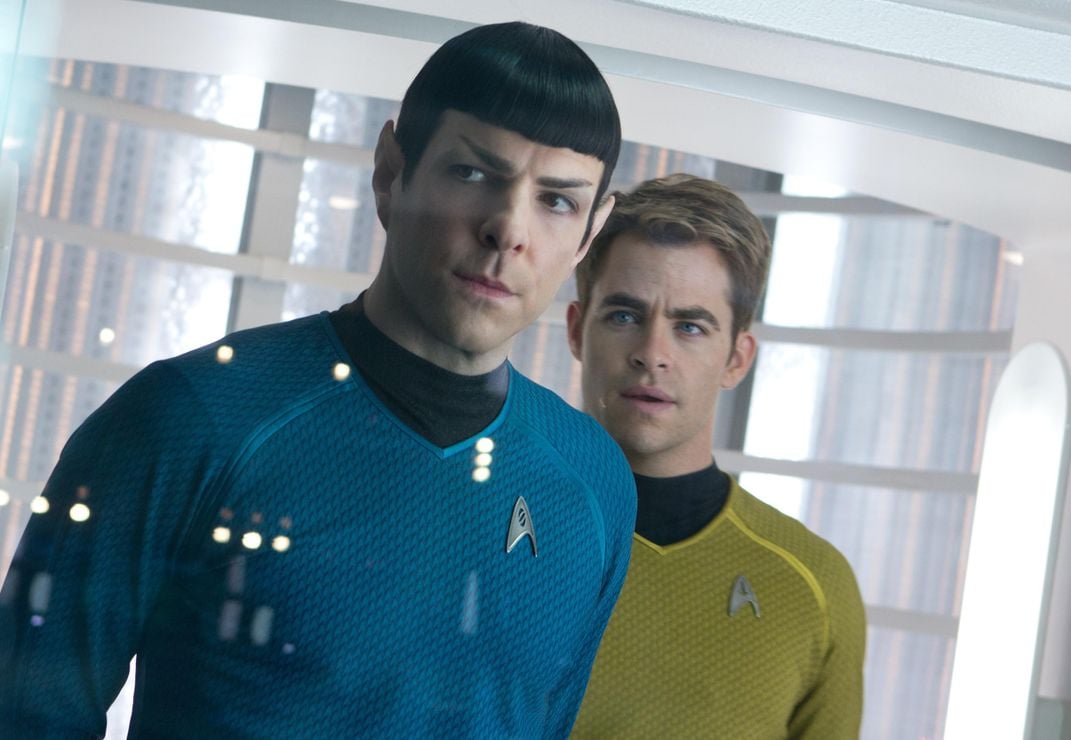
This isn’t a secret because it’s in the trailer: You’re destroying the Enterprise. For what is, by my count, at least the third time on screen.
The first time in this timeline, though.
Sure, but this is the third movie with this cast, and Star Trek III: The Search for Spock blew up the Enterprise already. That was the first Star Trek movie I saw in the theater, so it made an impression. Does Paramount require you to wreck the ship at least once per movie cycle?
[Laughs.] No. I was very much against it at first. I had stand-up rows with [director Justin Lin] about it, because I felt that if you were just going to do it for spectacle, it wasn’t a new thing. We’d seen it before, in [1994’s Star Trek: Generations] and in The Search for Spock.
But what Justin wanted to do was to physically remove the connective tissue among the crew. Take away the thing that necessitates their being together and see if they come back together again. To see how strong their bond is—if it’s beyond just the Enterprise. So we very violently remove their reason for being together. The film is all about the consequences of that, and how the crew responds to it. When I realized that’s what Justin was shooting for, I decided it was quite a good idea.
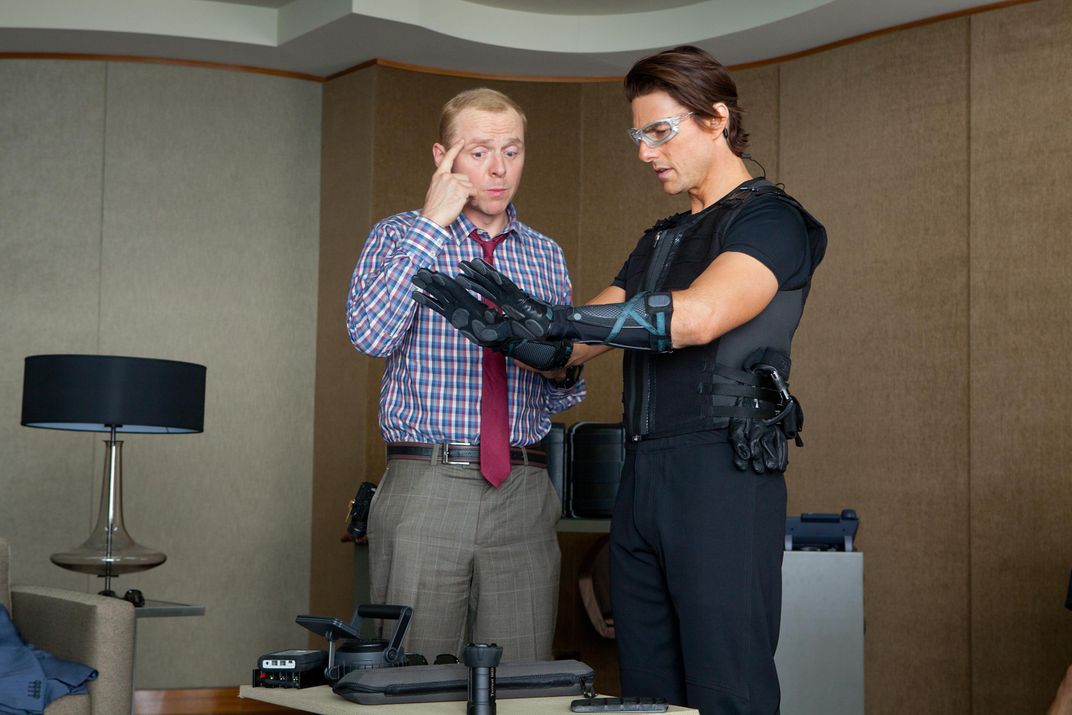
So you’re promoting your third Star Trek. You’ve done three Missions: Impossible. Are you doing another Star Wars?
No, Unkar Plutt is not in Episode VIII. I can confirm that.
Do you know yet whether you’re in Mission: Impossible 6?
Of course! I think we start shooting that in October.
So my question, as someone who was introduced to your work as an actor and writer through [the British cult sitcom] Spaced—where you play a guy who is obsessed with Star Wars and sci-fi and comics to the point of being emotionally arrested—is: What’s it like, a decade-and-a-half later, to find yourself a part of three of these enormous, beloved-by-nerds franchises?
The great irony is that in Spaced, my character, Tim, says: “As sure as eggs is eggs, as sure as day follows night, as sure as every odd-numbered Star Trek film is shite…” And here I am, 15 years later, writing Star Trek 13. The irony of that is not lost on me at all, ever. I grew up as a fan of all this stuff, and to find myself participating in it at such a level is a wondrous thing. And I try to maintain that wonder at all times.
I can’t believe I forgot that line. So you didn’t even think about saying to Paramount, “Not this time, but call me for Star Trek 14.”
Nope! I said, “I’m going to break this rule. I’m going set it straight.”


